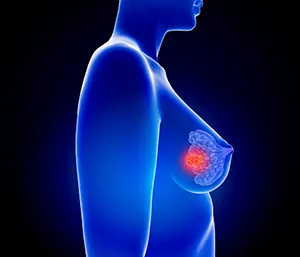
Breakthrough Study Reveals Long-Term Benefits of Dose-Dense Chemotherapy for Node-Positive Breast Cancer!
2025-01-10
Author: Mei
In a groundbreaking study published in the Journal of Clinical Oncology, researchers led by Dr. Otto Metzger Filho revealed fascinating results from a 12-year follow-up of the CALBG (Alliance) C9741 trial. This extensive research demonstrates that adjuvant dose-dense chemotherapy significantly outperforms conventional chemotherapy in improving disease-free survival and overall survival rates in patients diagnosed with node-positive breast cancer.
Examining the Trial: An In-Depth Analysis
The phase III trial, conducted in the United States, enrolled a total of 1,973 patients, with participants assigned to either receive dose-dense chemotherapy (administered every two weeks; 988 patients) or conventional chemotherapy (administered every three weeks; 985 patients). Among the participants, 636 in the dose-dense group and 640 in the conventional group had estrogen receptor (ER)-positive disease. The study primarily focused on key outcomes: disease-free survival and overall survival rates, particularly among patients with ER-positive cancers.
Key Findings: The Numbers Speak Volumes!
Remarkably, after a median follow-up of 12 years, those treated with dose-dense chemotherapy experienced a significant enhancement in their health outcomes compared to their counterparts on conventional regimens. Specifically, the dose-dense group exhibited a disease-free survival advantage with a hazard ratio (HR) of 0.77 (95% confidence interval [CI] = 0.66–0.90) and better overall survival with an HR of 0.80 (95% CI = 0.67–0.95).
This advantage was observed not only among patients with ER-positive breast cancer (HR = 0.80, 95% CI = 0.65–0.98) but also among ER-negative patients, who showed an even more remarkable survival benefit (HR = 0.70, 95% CI = 0.55–0.90). Importantly, the study found no significant interaction between treatment efficacy and ER status, indicating that both subgroups benefitted similarly from the dose-dense approach.
Prognostic Factors: What You Need to Know!
An intriguing aspect of this study was the role of the SET2,3 test index, a key marker of endocrine transcriptional activity. The findings underscored that low SET2,3 status was highly prognostic, signifying improved outcomes, particularly for patients undergoing dose-dense chemotherapy. In fact, those with low endocrine activity were more likely to reap the benefits of the dose-dense regimen, suggesting a tailored approach could be beneficial in clinical decision-making.
According to Dr. Filho and his team, "At 12-year follow-up, C9741 confirmed the sustained long-term benefit of adjuvant dose-dense chemotherapy for node-positive breast cancer. Low endocrine transcriptional activity was a significant predictor of benefits from dose-dense chemotherapy, contrasting with tumor burden or molecular subtype indicators."
What This Means for Patients and Clinicians
These findings mark a pivotal advancement in the treatment of breast cancer, shedding light on the efficacy of dose-dense chemotherapy and the critical role of endocrine factors in therapy response. With a deeper understanding of the implications, healthcare professionals may soon be able to optimize treatment protocols, enhancing the lives of countless patients battling node-positive breast cancer.
Stay tuned as we continue to bring you the latest in cancer research and treatment breakthroughs!


 Brasil (PT)
Brasil (PT)
 Canada (EN)
Canada (EN)
 Chile (ES)
Chile (ES)
 Česko (CS)
Česko (CS)
 대한민국 (KO)
대한민국 (KO)
 España (ES)
España (ES)
 France (FR)
France (FR)
 Hong Kong (EN)
Hong Kong (EN)
 Italia (IT)
Italia (IT)
 日本 (JA)
日本 (JA)
 Magyarország (HU)
Magyarország (HU)
 Norge (NO)
Norge (NO)
 Polska (PL)
Polska (PL)
 Schweiz (DE)
Schweiz (DE)
 Singapore (EN)
Singapore (EN)
 Sverige (SV)
Sverige (SV)
 Suomi (FI)
Suomi (FI)
 Türkiye (TR)
Türkiye (TR)
 الإمارات العربية المتحدة (AR)
الإمارات العربية المتحدة (AR)